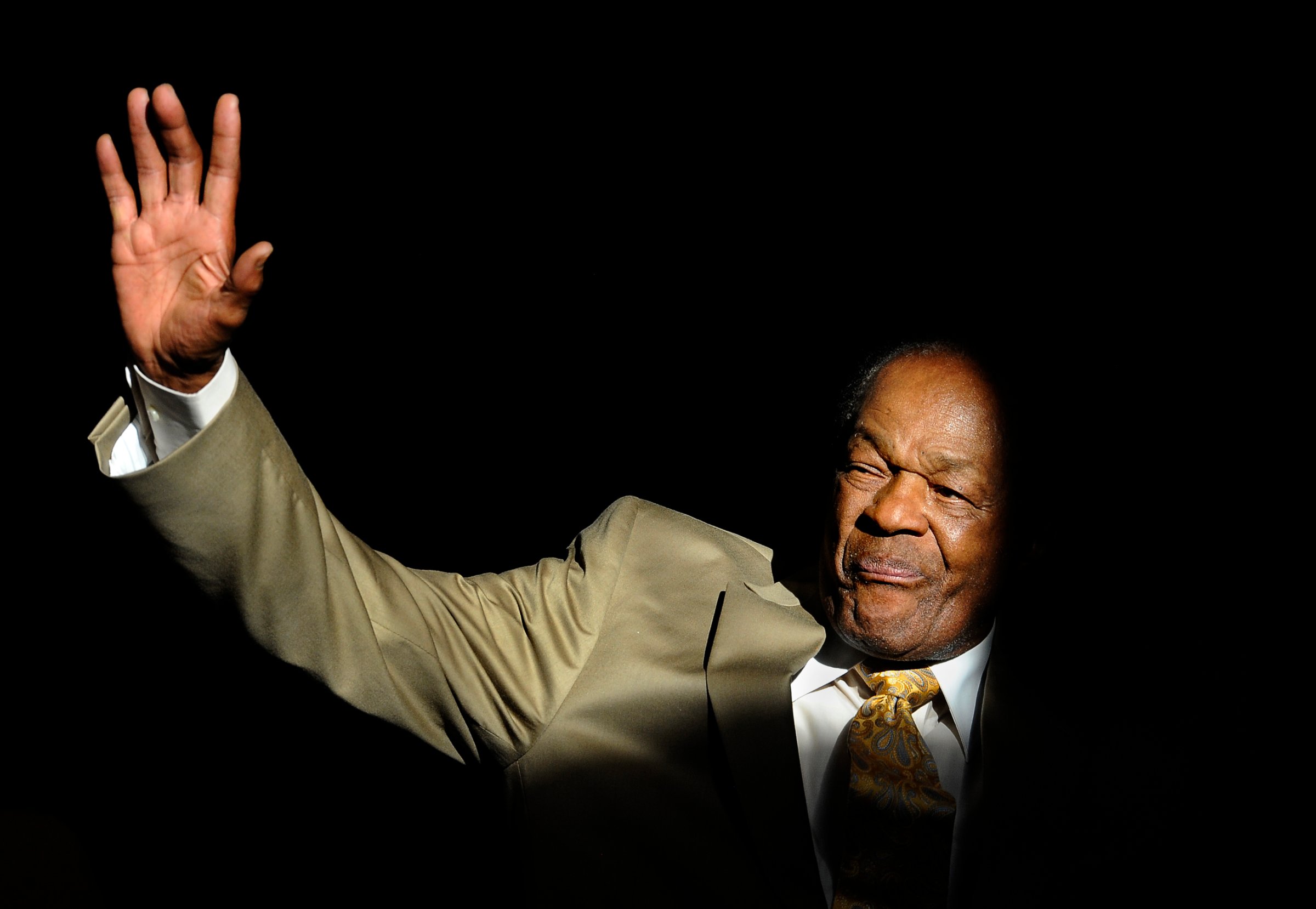
When Marion Barry, Jr. passed away last Sunday at the age of 78, many likely took little more note than to say “good riddance.” After all, most of the nation knew about the so-called “Mayor for Life” primarily from his appearances in national headlines after getting arrested, while in office, for smoking crack cocaine–or for his last term in office, when a congressionally appointed Control Board took over our city’s finances and many of our agencies.
But there was a vastly different side to Barry – a side that endeared him to tens of thousands of Washingtonians over the years and a side that became his greatest political asset, enabling him to win redemption again and again at the ballot box.
Barry cut his political teeth early on, as a civil-rights activist and a leader in the Student Nonviolent Coordinating Committee. There, he organized sit-ins and got young people involved in creating a new future for African Americans. Having been born into a sharecropper’s family in the sweltering oppression of Jim Crow-era Mississippi, he knew well the daunting height of the barriers to advancement and success faced by African Americans.
When Barry came to Washington in 1965 to work for SNCC, he saw a city that, in many ways, was every bit as segregated as the Mississippi of his childhood. Moreover, he found a majority-black city that was ruled not by its residents, but by a Congress in which its residents didn’t even have a voting voice. And that Congress had generally delegated oversight of the District to its most conservative white Southern members.
Marion Barry had found the place where he would make his mark, first as an activist for better relations with police and better employment opportunities for African Americans in the District. He got elected to the school board, and then finally, after the advent of Home Rule in the District, to the first popularly elected D.C. Council.
In his first term as mayor, he achieved some truly remarkable successes. He helped get the city’s chaotic finances under control, helped turn our Metropolitan Police Department into an agency whose officers are much more reflective of the population they serve than many other police agencies around the country, helped build the District’s black middle class through a groundbreaking program that required a share of city business to go to minority-owned enterprises and created a summer employment program for the District’s youth.
I still meet people who remember getting their first job because of a program that Mayor Barry started. And it’s this Marion Barry – the one who fought courageously for fairness and justice for much of his career – that those of us who saw him at his best choose to remember.
It may surprise many who aren’t keenly aware of the District’s history that Marion Barry won his first mayoral term largely by relying on upper-middle-class white voters and good-government advocates. Despite an unfortunate later choice to oppose marriage equality, Mayor Barry was one of the earliest elected officials to openly embrace the LGBT community, passing one of the nation’s earliest LGBT-inclusive non-discrimination laws. His legacy is so much more complex and wide-reaching than that fateful drug sting would reflect.
I knew Barry for years, and one anecdote leaps to mind as an example of his true character. I once served as executive director of what was then known as the Association for Retarded Citizens (now called The Arc of D.C.). One of our key advocacy goals was to move people with intellectual disabilities from an inhumane institution named Forest Haven to community living. There was fierce opposition in many neighborhoods to group homes, bolstered by some of the most egregious myths imaginable. One evening, I was with Mayor Barry in an affluent community where the District was preparing to establish a home. Nearly 200 people showed up for this meeting, with one purpose – to stop this home from opening.
Once Barry had concluded his presentation, a man rose and began to pepper him with questions. When it became apparent that the man’s inquiries had no constructive purpose, Barry said, “You really don’t want any answers, do you? If you want to talk about how we make this work, I will stay with you all night. Otherwise, I have nothing else to say to you!” It was vintage Barry – standing up for disadvantaged people who could not effectively fight for themselves. The meeting ended uneventfully – and the home soon opened and proved a huge success.
And so, like many other Washingtonians, I choose to remember Marion Barry by remembering his lifelong commitment to building up our city and freeing it from congressionally imposed shackles. I hope that history will remember, and honor, his virtues and successes – because they far outnumber his failures and foibles.
Vincent C. Gray is the Mayor of the District of Columbia.
More Must-Reads from TIME
- Inside Elon Musk’s War on Washington
- Meet the 2025 Women of the Year
- The Harsh Truth About Disability Inclusion
- Why Do More Young Adults Have Cancer?
- Colman Domingo Leads With Radical Love
- How to Get Better at Doing Things Alone
- Cecily Strong on Goober the Clown
- Column: The Rise of America’s Broligarchy
Contact us at letters@time.com